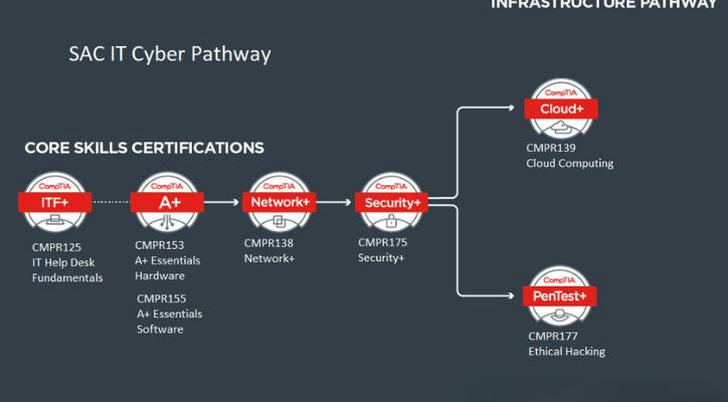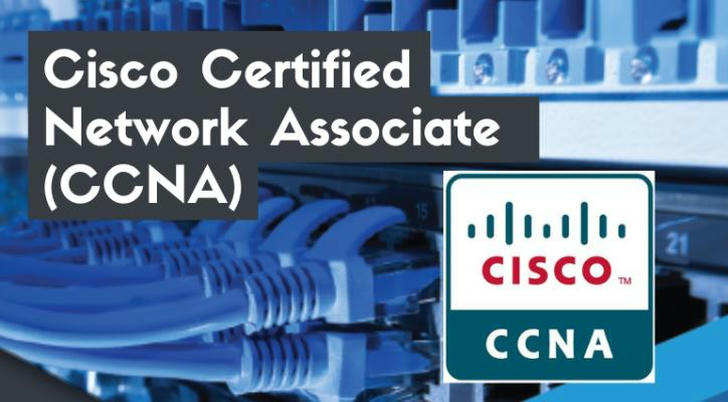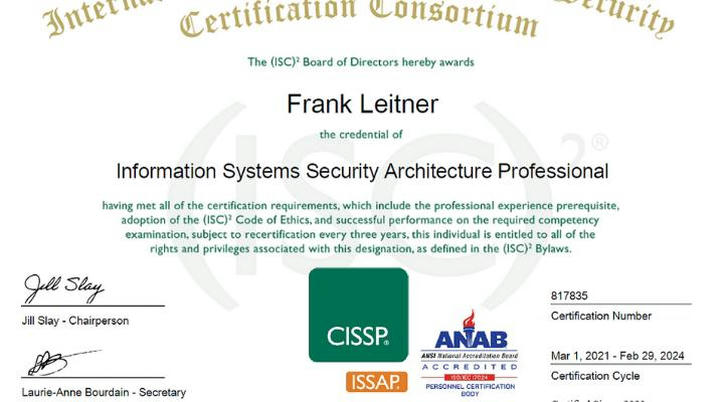The Most Popular Certifications in the Tech Industry: A Guide to Boosting Your Career
The technology industry is one of the fastest-growing and most competitive sectors in the world today. From cloud computing and cybersecurity to software development and data analysis, companies across industries are increasingly relying on skilled professionals to keep up with technological advancements. As the demand for tech talent continues to soar, certifications have become one of the most effective ways to stand out in this competitive field. In this article, we'll explore some of the most popular and valuable certifications in the tech industry, provide real-world examples of how they have helped professionals advance their careers, and offer solutions for obtaining them.

Why Certifications Matter in the Tech Industry
In the rapidly evolving tech landscape, certifications help professionals validate their skills and demonstrate their expertise to employers. While a degree may provide foundational knowledge, certifications prove that you have the specialized skills and up-to-date knowledge needed to excel in specific tech roles. In fact, many employers actively seek candidates with certifications because they offer a tangible way to assess a candidate's proficiency in key areas such as cybersecurity, cloud computing, and network administration.
Additionally, certifications can significantly boost your earning potential. Professionals with specialized certifications often command higher salaries than those without them. For example, a certified cloud architect or a cybersecurity expert can earn significantly more than a general IT technician due to the specialized nature of their skills.
Top Tech Certifications That Can Elevate Your Career
1. CompTIA A+ (IT Support and Networking)
The CompTIA A+ certification is one of the most widely recognized entry-level certifications for IT professionals. This certification focuses on foundational IT skills, including hardware, networking, and troubleshooting. It is a great starting point for those looking to enter the IT field, as it covers a wide range of essential topics.
Real-World Example:
James, a recent college graduate, decided to pursue the CompTIA A+ certification after completing his degree in computer science. He wanted to specialize in IT support, and after earning the certification, he was able to land his first job as an IT technician at a local business. The certification helped him quickly gain credibility and showcase his technical competence.
Solution:
If you're new to IT or looking to switch to a technical support role, CompTIA A+ is a solid choice. You can study for the certification using online resources, courses, and practice exams available through platforms like Udemy or LinkedIn Learning.

2. Cisco Certified Network Associate (CCNA)
The Cisco Certified Network Associate (CCNA) certification is widely regarded as one of the most valuable credentials for networking professionals. It focuses on the installation, configuration, and troubleshooting of networks, making it ideal for those who want to pursue careers in network administration and network engineering. The CCNA certification covers areas such as routing and switching, security, and wireless networking.
Real-World Example:
Sarah, a network engineer at a major tech firm, earned her CCNA certification after several years of working in the networking field. While her experience was valuable, the certification helped her gain recognition and advancement within her company. With her CCNA certification, Sarah was able to secure a higher-paying position as a network architect, where she now designs and manages complex network systems for clients.
Solution:
To earn your CCNA certification, start with Cisco’s Network Academy courses or other online resources like Pluralsight. Hands-on practice with networking equipment and virtual labs will also help reinforce the concepts you learn during your studies.
3. Certified Information Systems Security Professional (CISSP)
As cybersecurity threats continue to rise, the demand for skilled security professionals has never been higher. The Certified Information Systems Security Professional (CISSP) certification is one of the most respected credentials for cybersecurity professionals. It focuses on security management, risk management, and securing network and information systems.
Real-World Example:
David, a cybersecurity analyst, earned his CISSP certification after several years of working in the cybersecurity field. This certification helped him transition to a senior cybersecurity consultant role, where he now advises companies on how to protect their systems from cyber threats. The CISSP certification not only opened new job opportunities but also significantly increased his earning potential.
Solution:
The CISSP certification requires both experience and education in information security, so it’s ideal for professionals with at least five years of experience in the field. Study resources such as (ISC)²'s official study materials and Cybrary offer courses to help prepare for the exam. Gaining hands-on experience with security tools and techniques will also be beneficial in preparing for the test.

4. Amazon Web Services (AWS) Certified Solutions Architect
Cloud computing is one of the most rapidly growing sectors in tech, and Amazon Web Services (AWS) is the leading provider in this space. The AWS Certified Solutions Architect certification is designed for professionals who design and deploy scalable systems on the AWS platform. It covers areas such as cloud infrastructure, architecture, and cloud security.
Real-World Example:
Tom, a software engineer, wanted to specialize in cloud computing, so he pursued the AWS Certified Solutions Architect certification. This certification helped him gain expertise in cloud architecture, which was in high demand among employers. After earning the certification, Tom was promoted to a lead cloud architect position at a large software company, significantly boosting his salary and career prospects.
Solution:
To earn the AWS Certified Solutions Architect certification, you should have hands-on experience with AWS services. AWS Training and Certification offers a variety of resources, including free and paid courses, labs, and practice exams. Additionally, platforms like A Cloud Guru and Linux Academy provide in-depth learning paths for AWS certifications.
5. Certified Ethical Hacker (CEH)
As organizations continue to face increasing cyber threats, ethical hacking has become an essential part of cybersecurity. The Certified Ethical Hacker (CEH) certification trains professionals to think like hackers in order to better protect organizations from cyber attacks. This certification covers penetration testing, vulnerability analysis, and security system auditing.
Real-World Example:
Emma, an ethical hacker, earned her CEH certification to enhance her knowledge of penetration testing. With this certification, Emma was able to secure a consulting role with a cybersecurity firm, where she helps companies identify vulnerabilities in their networks and systems. The CEH certification significantly boosted her credibility and marketability in the cybersecurity field.
Solution:
If you’re interested in ethical hacking, the CEH certification is an excellent choice. Many online platforms, such as EC-Council, Udemy, and Pluralsight, offer comprehensive courses to help you prepare for the certification exam.

Conclusion
Certifications are an essential tool for professionals looking to advance in the tech industry. Whether you are just starting out or seeking to specialize in a particular area, obtaining a relevant certification can set you apart from others in a highly competitive job market. From CompTIA A+ for IT beginners to advanced certifications like CISSP and AWS Solutions Architect, there is a wide range of credentials available to suit different career paths.
To maximize your career potential, choose a certification that aligns with your goals, invest time in studying, and leverage online resources to gain the skills and knowledge necessary to pass the certification exams. By earning one or more of these industry-recognized certifications, you can enhance your expertise, increase your job prospects, and take your tech career to the next level.
